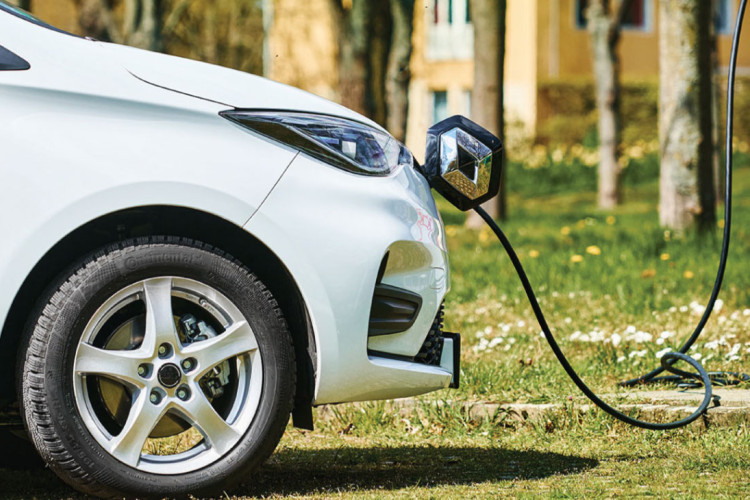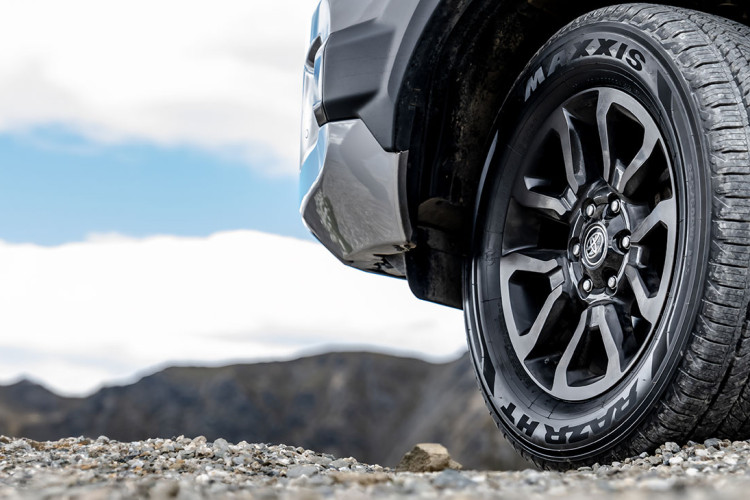The future of vehicles in New Zealand
Regardless of what you believe the future of the environment is and what you think we should do about it... there’s some changes happening that will affect you. So we figured it was a good time to provide the rundown on those changes and what they mean for the average Kiwi who gets behind the wheel of a vehicle. Because by the time some of us retire, those small retiree vehicles we have will no longer look like a small hatchback with a tartan rug on the back seat and those wooden bead things on the driver's seat. Well, it might look exactly like that. Just less noisy. Personally, something fast with a banging sound system is preferred over a glorified milk float. But we digress.
What's happening now?
Carbon emissions in New Zealand
A report by the Climate Change Commission was released in January 2021. It did not make for encouraging reading. Without “transformational and lasting change across society” New Zealand will not meet its emissions reduction targets. The report makes a number of recommendations for action if New Zealand is to catch up and do what is necessary to meet those targets, along with those NZ committed to within the Paris Agreement, of which New Zealand is a signatory.
Whilst pretty much everything contributes to carbon emissions, the vehicles we use are amongst the worst culprits. 37% of the average households contribution to carbon emissions comes from their use of transport. So if the average household vehicle (or vehicles - we like to own more than one and enjoy one of the worlds highest ownership rates) is one of the biggest culprits then it has to be squarely in the sights of officials and regulators. Which it is.
What is the government doing about it?
One of the most effective ways to cut carbon emissions is to cut our reliance on vehicles powered by fossil fuels. To do that, any Government only has a few options up their sleeve. You have to either incentivise people out of cars with combustion engines, add punitive charges for using them to discourage use, or remove them as an option altogether.
The last option is not that far-fetched either. The UK Government recently brought forward its ban on all petrol and diesel cars. So come 2035, British folk will no longer be able to purchase a diesel four wheel drive or sporty 2 seater petrol convertible. Here’s the thing though... they won’t be able to buy a hybrid or PHEV (Plug in Hybrid Electric Vehicle) either. The law was changed to outlaw them too. It’s pure electric vehicles or nothing.
Could that happen here? Of course it could. It’s unlikely though. For now, the Government is more likely to go down the route of affecting change through financial forces. Before the last election Labour faced a backlash on the proposed ‘feebate’ scheme and quietly dropped the policy. The scheme would have issued a levy on polluting cars, the revenue from which would be used to incentivise the purchase of electric vehicles.
So what is exactly happening and what is the Government doing? The Government is committed to passing a law on what’s called the Clean Car Import Standard. Basically, it means importers need to bring in more hybrids, electric and fuel efficient vehicles, or face charges based on the number of C02 grams above that which is permitted. The effect to the everyday motorist is a reduction in the availability of vehicles you have now. It’ll be harder and more expensive to source those mighty V8’s in the future.
Any scheme like this will have a long period where the effect is reduced, with the average car lasting 19 years, so it would be reasonable to say the rules will get even tighter at some point in the future.
We can't all afford a Tesla...
For the motorist, apart from the choice of vehicles being affected, there are possible cost implications. The Government has yet to announce what it’ll do to make EV’s more affordable but has hinted at there being a plan in the works. Such as a purchase subsidy or something similar.
That could prove to be a big stumbling block for most kiwi’s. Aside from the small EVs, if you have to get something big enough to fit the average kiwi family, then you’re talking big bucks. But what about Tesla... which has long touted its product as an affordable EV for the everyman? $75k gets you started with the Model 3. It goes up from there.
For Kiwis to fully embrace the electric vehicle they need to make them much more affordable. We took a look and tried to find how much the average kiwi spends to purchase a car. Alas, we couldn't uncover any data but would hypothesise that whatever this figure is, that’s where the average EV price should sit too. A few grand over that will be enough to convince most people to stick with the petrol or diesel options they can find.
We should say, it’s not the manufacturers’ fault and there is no blame being levied at the car companies. The technology being used is still in its infancy and comes at a cost. Given how hard it is for car companies to actually turn a profit (hence Holden’s sad demise) you know it’s not them making the dollars. So who is?
The curious case of Tesla
We’ll digress here for a moment because this is interesting (yes, we are a little geeky). Tesla would be one of those car companies that struggles to make a profit. Yet its stock price rallied by 743% in 2020, making it one of the most valuable companies in the world. There must be something behind that, right? Turns out there is something to be sniffed out.
Tesla posted its first ever full year of net income in 2020. But this profit didn’t come from selling lots of nice cars to people (we should state for the record here - Tesla does make some very nice cars). The profit came from selling regulatory (or carbon) credits. A number of states in the US require auto manufacturers to sell a certain amount of zero emission vehicles. If they can’t meet the target then they need to make up for it by buying regulatory credits from someone else. Like Tesla.
In 2020 alone, Tesla received US$1.6 billion from this. Without it, they would have made a loss. What does all this tell us? We’re not sure as numbers ain’t really our thing. All we take from it is it’s hard to make money from flogging EV’s at the moment. And if that is true, it’s unlikely they’ll become more affordable in the short term.
What else is needed?
Accepting the change to EVs and that the Government will do something to move drivers into then… what else do we need? Infrastructure. That’s what we need. EVs need to be plugged in somewhere and the speed with which they charge depends on what you plug them into. They are some super fast charging stations that can charge some EVs to 80% in an hour or under.
That’s still a problem though. Anyone with crying children in a car will know the time warp that comes with each shriek. This is when every minute with a crying child seems to last at least 2 hours. So having to park up and wait 60 minutes to charge is like parking in a patrol station and waiting to grow a beard before you leave the forecourt.
Ok, it’s not that bad. Charges can be planned… usually. You can always charge at home. Or at the office (will your employer charge you for adding to their utility bill?). We don’t know how it’ll all work out but these things tend to find their own way. If it’s possible to make it from the bottom of South America to LA in the ‘The Long Way Up’ on electric Harley Davidsons, then we’ll probably be ok. There’s still just the small issue of all the extra electricity required to run an entire country’s vehicle fleet... which is a lot.
Hydrogen fuel cells
There’s something else on the horizon. They may have been described as ‘fool cells’ but some are betting on hydrogen fuel cell cars as the eventual replacement for EVs. Yup - some folk are already moving on to what comes after the electric car.
So what is a hydrogen fuel cell car? We’ll attempt to explain (whilst simultaneously regretting not listening more attentively in science class). Here we go… hydrogen is stored in a tank. From there it’s mixed with oxygen to produce electricity. The byproduct is not a harmful lead admission coming out of an exhaust… but water. Yup, H20. The chemical formula for water is a simple blend of one oxygen and two hydrogen atoms for each water molecule. Hydrogen can be pumped into the tank, just like petrol. So no standing around and waiting for the charge. Hydrogen Fuel Cell vehicles also have a range of 300 kms plus.
So what’s the drawback and why haven’t we already moved onto hydrogen? Well, cost is an issue. Hydrogen might be the most abundant resource on the planet but it seems no-one is really set up well to source and distribute it. So the current cost in the US is about 4 times that of petrol. Also, Hydrogen is flammable so you need to adapt fueling stations more than what’s required for Electric. The infrastructure is pretty much wired in for pure EVs (pun intended).
However, research points to Hydrogen being the next big thing, with 78% of auto executives in a KPMG survey saying just that. So that EV might not be with you for long.

Where does it leave the Kiwi motorist?
Picture the scene… your grandchildren are running riot. They’re restless and have decided to explore your garage. They know there’s lots of weird things in there. There’s also something under a large dust sheet that just must be explored. Slowly they pull the dust sheet off to reveal a car. Hmm, not as exciting as they thought it would be. They walk back to the main house, dejected and disappointed. You give them a wry smile and walk them back out to the garage, open the glove box to pull out the key. The engine starts with an almighty roar that makes the little people jump. They’ve never heard such a sound. The sheer power of the 1.2 litre hatchback has them stunned. Yes… in the future small hatchbacks will be known as beasts whose roar is mighty and impressive.
Well, maybe not. But those combustion engine vehicles will be museum pieces. There’s no changing that. To be honest though, EVs will bring some exciting changes to vehicles too. There’s a Honda out there that has a large screen across the entire front dashboard. You can hit a button and have it show you a nice aquarium video, like you have a fishtank in your car. That’s pretty cool.

We don't have a crystal ball...
...But we suspect tyres will be 'round' for a while.
More tips and articles

Tyres for Electric Vehicles

Product Spotlight:
Maxxis HT780 RAZR HT

